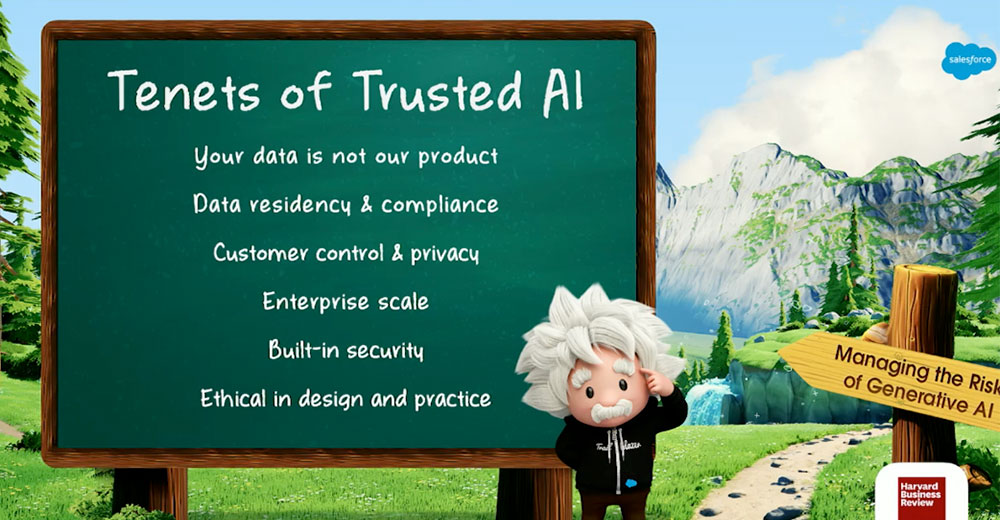Heather Reed is VP of business development for G2 Crowd, which offers a business software review platform designed to bring transparency to business-to-business buying.
In this exclusive interview, Reed discusses the problem with the use of terms like “girlboss” and the importance of gender inclusivity in the workplace.

TechNewsWorld: Could you describe the trajectory of your career? How did you get where you are today?
Heather Reed:
My first job was at a Ben & Jerry’s ice cream shop in San Diego. Eventually, instead of just scooping ice cream, they made me responsible for the franchise operation. A lot of times people look at my career path as being that of a salesperson, but I look at it as one that’s been on a management track. That’s where it started.
I knew that I really liked the operations and management piece of it, but knew I didn’t want to be covered with ice cream for the rest of my life. I worked for a while at an upscale retirement community, doing marketing, and from there, I kept diving into various industries.
After leaving T-Mobile, I moved into a startup B2B event management and marketing company, working right alongside the tech sector. That’s where I got my toes wet in the tech sector and grew passionate about it, and eventually made the transition to G2 Crowd.
TNW: I’ve read that you sold Girl Scout cookies when you were younger. What did that experience teach you about sales and the business world?
Reed:
That’s the very early stage of finding something I was passionate about. Back then it was a competition to get a stuffed manatee, and boy did that fuel my fire. That was when I first got the taste of selling things.
I learned that what you get out of something is a direct result of the effort you put into it. I really wanted the prize, and so I went after it and sold as many of those boxes as I could.
TNW: You’ve spoken before about the importance of using gender-inclusive language in the workplace. Why do you think this kind of inclusivity is an important goal?
Reed:
It helps us get away from the silos we put people in. By using gender-neutral terms, we might change people’s minds about what jobs they’re qualified for and have a chance of getting. Getting rid of gender-biased terms helps level the playing field.
TNW: How do you define gender-inclusive language?
Reed:
I think it’s a lot of things. It’s as simple as not using he/she pronouns when you’re talking about certain roles, or saying “salesperson” instead of “salesman.” It starts there.
I also think that there are different phrases that we use and don’t even think about it, like “right-hand man,” or “manning up,” or “chatty Kathy.” We need to be cognizant of the subtle implications those terms have.
It goes beyond that as well, to the language we’re using when coaching people. As a strong woman, I’ve been told I can be “intimidating,” but my male counterparts are called “assertive.” We need to be aware of how we’re using words, and what other constructive terms we can use.
TNW: Do you see gender dynamics in the workplace evolving over time? What’s in the future?
Reed:
I wish I had a crystal ball. I don’t know. I think we’ve evolved a fair amount. I’ve been in the workforce over 20 years, and I’ve seen some shifts in the workplace. We have made headway, and the fact that it is a somewhat regular conversation means we’re pushing in the right direction.
One term I don’t like is “girlboss.” I started thinking about it when a former female colleague and I were the only two women on the leadership team. We stepped out of the office after a rough week. We were sitting there joking that we were boss babes. With her and I together, it was empowering. But in hindsight, it’s challenging for me.
As much as it was a private conversation, when terms like that are used around a mixed gender audience, it can be a slippery slope. Are we perpetuating gender distinctions by using these terms? At some point, leaders are leaders. We want these things to be leveled out. To some extent, the “girl” or “female” labels might be perpetuating the situation.
TNW: Would you recommend the use of the term “woman-owned business”?
Reed:
We highlight minority- and women-owned businesses. There’s a time and a place for things. I think it depends on the context in which it’s being promoted.
TNW: Do you think women bring a unique style to the workplace?
Reed:
I don’t think that any two people are the same. I think that management style is individual to the person. Gender may to some extent play a role in that, but it has a lot more to do with the individual, what their passions and strengths are.
TNW: What is your advice for young girls and women who might be interested in pursuing tech-related careers?
Reed:
Don’t let anyone scare you or stand in your way. If it’s something you’re truly passionate about, back yourself in the pursuit of that. That’s something I’ve always done: trusted my gut.
If you want something, go after it. Don’t shrink in the back of the room. Don’t be afraid to have a voice or an opinion. Be proud of the experiences you’ve had. The sky’s the limit. That’s how my parents raised me, and that’s what got me where I am today. My advice to young women pursuing careers that are traditionally male-dominated is to go after it. You’re the trendsetter.























































